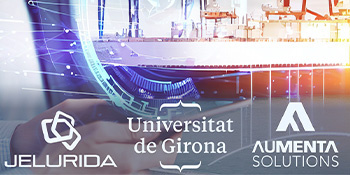Austrian Government-Funded HotCity Project To Use Ardor Blockchain for Gamifying Energy-Oriented Neighborhood Planning
13 May 2020

VIENNA, Austria, (May 11, 2020): HotCity, a sustainable energy project funded by the Austrian government and operated by various partners, is pleased to announce it is launching its testnet on the Ardor public blockchain. HotCity uses gamification powered by blockchain technology to crowdsource waste heat that will be directed into neighborhoods, making them more energy-efficient. The project aims to develop a means of ensuring that neighborhood planning becomes more energy-oriented, with a focus on sustainability.
HotCity has received a 310,000 Euro grant from the Austrian Federal Ministry for Climate Action, Environment, Energy, Mobility, Innovation, and Technology (the BMK.) Funding is delivered via the "City of the Future #5th Call" program processed by the Austrian Research Promotion Agency (FFG).
The group of partners behind HotCity consists of different companies and research institutions led by the renowned AIT Austrian Institute of Technology.
Jelurida is the company operating the Ardor blockchain. Picapipe GmbH developed the gamification metrics and blockchain handling. Digital Sunray is responsible for the development of the users' app, and Graz Energie Agentur contributes its expertise in the field of energy systems.
HotCity Objectives
“Plus-Energy districts” produce more energy than they consume and are characterized by a high supply of heating, cooling, and electricity from renewable energy sources that are locally available. This may include waste heat from industrial food production or hardware in data centers, for example. The energy output is harnessed and redirected back into the grid, making an essential contribution to heating and hot water production in Plus-Energy districts.
The larger sources of heat from industry and commerce are often already identified and utilized. However, it can be more difficult to locate smaller sources of wasted energy due to data that is either out of date or lacking in the necessary level of granularity.
The HotCity project has established a methodology of crowdsourcing heat data using gamification powered by blockchain technology. The approach aims to make collecting data about potential energy sources both voluntary and playful.
HotCity enables citizens to find and submit information from a variety of sources, including on-site inspections, photos, or Google Maps. The system uses gamification to incentivize contributions. HotCity can then draw conclusions about the quality and quantity of waste heat sources.
The gamification system offers different levels of reward points. It is secured on the Ardor blockchain, on which the reward points are digital assets, or tokens, recorded on the Ignis child chain.
Dr. Ernst Gebetsroither-Geringer from the AIT GmbH is leading the project. He states:
"Urban planning and spatial energy planning often suffer from the missing availability of good, validated, and up-to-date data sets. Gamification is an innovative and elegant approach, using the power and the creativity of the people, to counteract this."
About HotCity
HotCity is a collaborative project funded by Austrian Federal Ministry for Climate Action, Environment, Energy, Mobility, Innovation, and Technology. The project aims to generate data for energy-oriented city planning using a gamified system.
HotCity is led by the AIT Austrian Institute of Technology. The AIT is Austria's largest non-university research institution with more than 1,260 employees. With its eight Centers, the AIT is regarded as a highly specialized research and development partner for industry. The blockchain technology powering the project is provided by Jelurida, with contributions from Picapipe, Digital Sunray, and Graz Energie Agentur covering gamification, app development, and expertise within the energy sector.
The project has recently won the Austrian Blockchain Award, from the Austrian Blockchain Center and the Austrian Chamber of Commerce, and has been mentioned in Cointelegraph and Coinspeaker.
For more information please visit: https://cities.ait.ac.at/projects/hotcity/


